Reproductive health, biosimilars, IgG4-related disease and much more—five speakers give us a sneak peek into important topics being addressed at the ACR’s 2025 State-of-the-Art Clinical Symposium, April 4–6.


Reproductive health, biosimilars, IgG4-related disease and much more—five speakers give us a sneak peek into important topics being addressed at the ACR’s 2025 State-of-the-Art Clinical Symposium, April 4–6.

Mithu Maheswaranathan, MD |
WASHINGTON, D.C.—Retroperitoneal fibrosis (RPF) is often a challenging diagnosis to make, given a lack of serologic biomarkers and often difficulty in accessing tissue for biopsy, especially in cases confined to the retroperitoneum. The topic of retroperitoneal fibrosis was discussed during the CARE to Test Your Knowledge: Retroperitoneal Fibrosis session at ACR Convergence 2024. John Stone,…
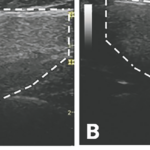
Hung Vo, MD, Zhichun Lu, MD, & Eugene Kissin, MD |
The Case A 47-year-old woman presented with a one-year history of bilateral submandibular gland swelling, mild symptoms of xerostomia and xerophthalmia and arthralgias in her fingers. A review of systems was otherwise unremarkable. On physical examination, her submandibular glands on both sides were enlarged and had a firm texture. Her parotid glands were normal, as…
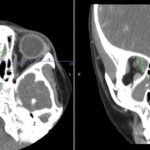
Geoffrey E. Thiele, MD, & Sara Haro, MD |
Granulomatosis with polyangiitis (GPA) is a type of anti-neutrophil cytoplasmic antibody (ANCA) associated small vessel vasculitis that typically affects the kidneys, lungs and sinuses.1 Due to an overlap in signs and symptoms, GPA may initially be difficult to distinguish from IgG4-related disease, another condition that can affect multiple tissues and has variable presentations. Further complicating…
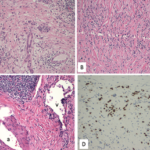
Veronica Matto, DO, Rajshri Shah, MD, Jie Ouyang, MD, PhD, Cory Perugino, DO, & Joseph J. LaConti, MD, PhD |
Sarcoidosis and IgG4-related disease (IgG4-RD) are both immune-mediated, often multi-organ, diseases of uncertain etiology capable of presenting with diverse clinical manifestations. Many clinical features are common to both conditions, including hypergammaglobulinemia, the ability to form inflammatory masses and involvement of the lymph nodes, lacrimal glands, salivary glands, meninges and lungs. Although imaging modalities, such as…
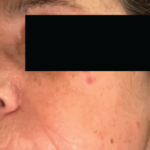
Alyxandra Soloway, MD, & Stephen Soloway, MD, FACP, FACR |
Immunoglobulin G4-related disease (IgG4-related disease) is relatively rare, although with greater recognition it is becoming more frequently diagnosed. Some of the more common presentations of the disease include aortitis, cholangitis, autoimmune pancreatitis, sclerosing sialadenitis, orbital disease with proptosis and subacute mass development in the affected organ.1 It has protean manifestations and is diagnosed by classic…
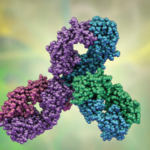
In 1888, Dr. Jan Mikulicz-Radecki reported a case of chronic, bilateral, painless enlargement of the salivary and lacrimal glands that appeared to be idiopathic.1 In subsequent years, other patients with these findings were reported, and the term Mikulicz syndrome was used to describe these cases. Although Mikulicz syndrome is now known to be associated with…

A retrospective study found serum interleukin 6 levels at the onset of IgG4-RD may significantly correlate with clinical inflammatory parameters and the involvement of the bile duct, liver and spleen…

Immunoglobulin G4-related disease (IgG4-RD) can cause fibroinflammatory lesions in nearly any organ, and diagnosis is challenging. ACR/EULAR classification criteria for IgG4-RD have been developed and validated in a large cohort of patients. These criteria have performed well in tests and should contribute substantially to future clinical, epidemiologic and basic science investigations.

Despina Michailidou, MD, PhD, & Paul Cohen, MD |
Immunoglobin G4-related disease (IgG4-RD) is a rare fibro-inflammatory disease of unknown etiology that has been recently recognized. It can cause fibro-inflammatory masses in almost every organ of the body and is associated with dense lymphoplasmacytic infiltration of IgG4-postitive plasma cells, storiform fibrosis and elevated levels of serum IgG4.1 IgG4-RD is a systemic disease that may…